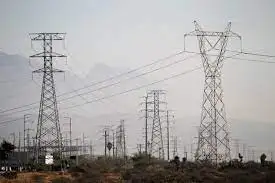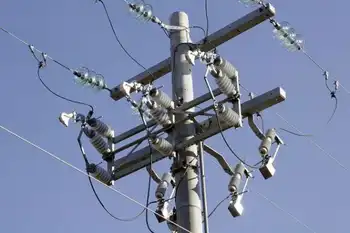Maritimes ponders single operator for region
HALIFAX, NOVA SCOTIA - The Atlantic provinces are studying the creation of a single system operator for the region's electrical grid, a move the provinces say could reduce power rates.
The four Atlantic energy ministers met in Halifax in an effort to boost cooperation between the provinces.
At the meeting, all four provinces agreed to examine — among other items — the idea of one system operator for the region.
If implemented, the unified operator would balance the electricity needs of the entire region by pulling from power sources within all four provinces.
For instance, periods of strong wind on Prince Edward Island would allow the system operator to push more wind power into the regional grid.
On a windless day, nuclear power from the Point Lepreau reactor in New Brunswick or coal-fired power from Nova Scotia would be pumped further into the grid.
In all, the system operator would balance the region's wind, nuclear, hydro and coal-fired power to keep the lights on across all four provinces.
New Brunswick Energy Minister Craig Leonard said the four provinces will determine the benefits and potential drawbacks involved with creating a single system operator.
He said a single operator could boost the use of renewable energy within the region as well as reduce the need for backup power in each province.
"It's got some interesting potential. There's no question about that," he said, noting a study of the concept should be completed by year's end. "It would probably provide some very substantial benefits."
Richard Brown, PEI's energy minister, said the inspiration for creating a regional operator is simple: better power rates.
"If we do this right, it means good, stable power rates, which attract companies," he said in an interview.
"That's the objective here: to keep power rates in Atlantic Canada as low as possible. It's not about making more bureaucracy and Crown corporations."
Brown said the idea of sharing all the region's power contrasts sharply with the provinces' common goal of shipping power to the United States.
"In the past, we were all focused on how we could sell to the U.S. market. But there's a market sitting right beside us," he said.
"If we all work together here, we could all benefit together."
The idea of a regional system operator isn't a new one.
Last year, the CEO of Shear Wind Inc. said the work of local wind developers could be made easier if regulations were streamlined between Nova Scotia and New Brunswick.
Mike Magnus, whose company runs the Glen Dhu wind farm in Nova Scotia, said the New Brunswick system operator, the independent body that operates the transmission grid, should be merged with Nova Scotia's system operator.
A merger, he said, would reduce red tape when looking to export power from Nova Scotia through New Brunswick.
"It would be nice to work with just one entity," said Magnus.
"The sooner the distribution systems between the Maritime provinces are controlled under one roof, the better."
In a report issued last year, Maine-based energy consultant Gordon Weil recommended a single system operator to improve the flow of power across the eastern provinces.
Nova Scotia Energy Minister Charlie Parker said the benefits of co-operation are evident in last year's $6.2-billion power deal between Emera Inc. and Nalcor Energy, which will see the pair partner to move power from the Lower Churchill in Labrador to Nova Scotia.
Nova Scotia Power, an Emera-held company, will build and fully own a subsea transmission cable connecting Newfoundland with Cape Breton. In return, Nova Scotia Power will receive — over 35 years — 20 per cent of the electricity produced at Labrador's Muskrat Falls hydroelectric facility.
"We're four provinces with four separate utilities — two of which are private, and two of which are public. But we all share the same goal of trying to get clean energy for Atlantic Canadians," Parker said.
"We're just looking for ways to benefit as a region overall — with stable energy prices and clean, green energy."
Related News

Advocates call for change after $2.9 million surplus revealed for BC Hydro fund
VANCOUVER - BC Hydro is sitting on a surplus of about $2.9 million in its customer crisis fund, leading to calls for the utility to reduce its take from the average customer or provide more money to those in need.
B.C. Liberal Energy Critic Greg Kyllo said if the imbalance continues in the year-old pilot program, it’s time to cut the monthly 25 cent fee in half.
"If the grant requirement or the need in the province is going to remain where it is, they should look at rolling back the contribution level in the fund," he told CTV News Vancouver from…



